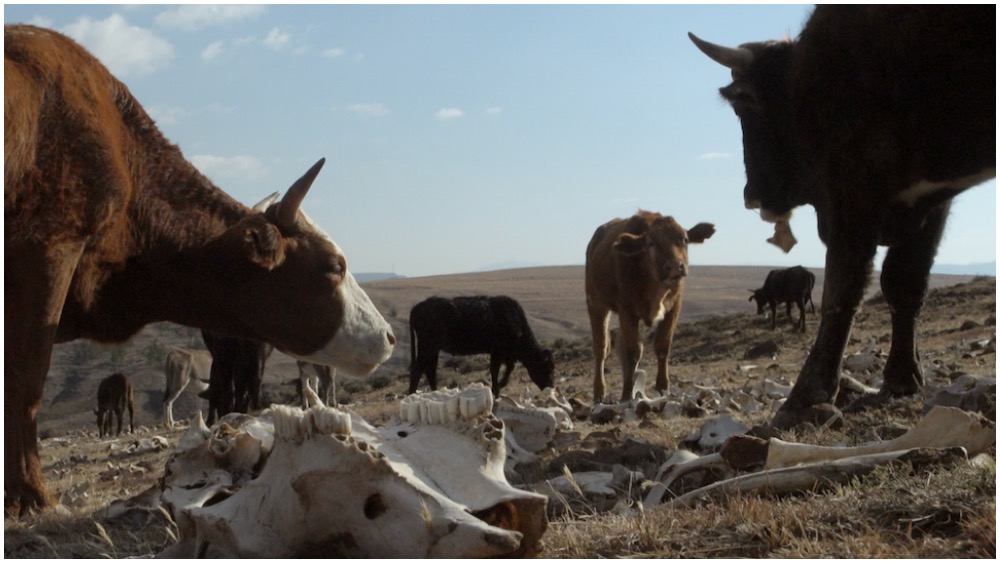Director Teboho Edkins on Chinese Migrant Doc ‘Days of Cannibalism’
By Christopher Vourlias
LOS ANGELES (Variety.com) – Deep in the heart of the mountainous kingdom of Lesotho, the arrival of new settlers has upset the balance of power. These economic migrants from China have called old laws and gods into question, and in the uncertainty over what new way of life will emerge, only one rule holds true: eat or be eaten.
“Days of Cannibalism” is the feature debut of documentary filmmaker Teboho Edkins. Produced by France’s KinoElektron, South Africa’s Day Zero Film, and the Netherlands’ Keplerfilm, it world premiered in the Panorama section of the Berlin Film Festival. World sales are being handled by Indie Sales.
Edkins was drawn to his subject around a decade ago, as China’s growing investment in Africa was prompting skepticism about what many commentators saw as a new era of colonialism on the continent. The director, who grew up partly in Lesotho, soon befriended a Chinese man who had immigrated to the remote town of Thaba-Tseka. Gradually Edkins gained the trust of the local community, visiting over the course of nearly four years to witness and record the changes spurred by a wave of new Chinese arrivals.
The evolving relationship between the Chinese and the Basotho people rekindled an old flame for Edkins. “I’ve always wanted to make a Western,” he said. He cited the influence of his former film professor Valeska Grisebach, the director of the Cannes Un Certain Regard player “Western,” who described a Western as “a film about a space in which the rules are still in flux, and the balance of power is in negotiation.” Edkins added: “It’s really about a frontier space.” With that realization, the pieces of “Cannibalism” began to fall into place.
In Basotho culture, the cow is referred to as “the wet-nosed god,” an indication of the animal’s primacy in almost every aspect of daily life. Men who own large numbers of cattle are respected in their communities, while using their positions to benefit those around them.
For the Basotho, the cow has great symbolic importance. But for the new Chinese immigrants, the animal performs a more transactional role on its journey from the field to the butcher’s block. Growing poverty has led to another seismic shift in Lesotho, as increased cattle rustling has frayed the bonds that have long held communities in the small, southern African nation together. “You see how this whole system is beginning to collapse,” said Edkins.
Despite Chinese investment in large-scale infrastructure projects across Africa, and other efforts by the Chinese government to curry favor on the continent, the director said the larger story of Chinese immigration in Africa isn’t part of a “master plan.” “It’s just individual people going out and trying to find a better life for themselves.”
Those personal journeys are set against an evolving relationship between China and Africa that, unlike previous Western engagements with the continent, isn’t burdened by the weight of a colonial past. “It’s fresh, and in a way it’s innocent,” said Edkins. “Or you can say it’s completely utilitarian. It’s two cultures…making use of each other on the most base level.”

